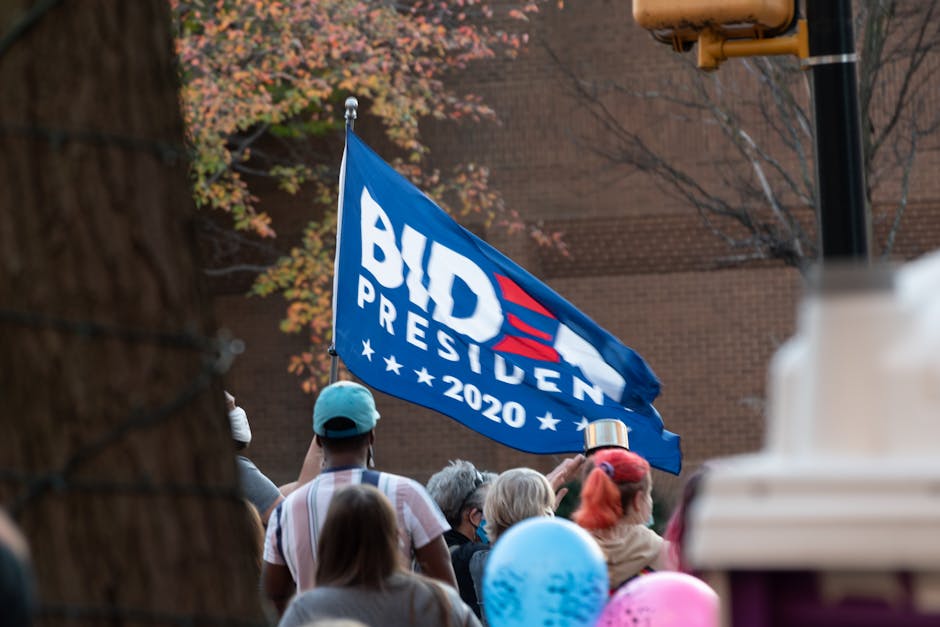Early Life and Career: From Scranton to the Senate
Joseph Robinette Biden Jr., the 46th President of the United States, boasts a long and storied career in public service. Born in Scranton, Pennsylvania, on November 20, 1942, Biden’s early life was shaped by his working-class family and the values they instilled in him. His experiences with overcoming a childhood stutter and the loss of his first wife and daughter instilled in him empathy and a deep understanding of the struggles faced by many Americans. He graduated from the University of Delaware and Syracuse University College of Law, launching his political career relatively early.
Biden’s political journey began in 1973 when, at the age of 29, he was elected to the U.S. Senate representing Delaware. His time in the Senate was marked by his commitment to foreign policy, particularly his involvement in the Senate Foreign Relations Committee. He became known for his ability to build consensus across the aisle, a skill that would define his political career.

Key Senate Accomplishments and Legislative Contributions
During his lengthy Senate tenure, Biden championed several significant legislative initiatives. He was a key player in the passage of the Violent Crime Control and Law Enforcement Act of 1994, a landmark piece of legislation that significantly impacted the American criminal justice system. However, this act has also drawn criticism for its contribution to mass incarceration. He also played a crucial role in shaping the 1990 Clean Air Act Amendments and consistently advocated for policies aimed at promoting economic opportunity and social justice.
Beyond his legislative work, Biden’s contributions extended to his role in shaping foreign policy. His work on the Senate Foreign Relations Committee gave him a deep understanding of international affairs, an expertise he would later leverage as Vice President and President. He played a prominent role in shaping US foreign policy in various regions, often prioritizing diplomacy and international cooperation.
The Vice Presidency under Barack Obama
Biden’s selection as Barack Obama’s running mate in the 2008 presidential election marked a pivotal moment in his career. His extensive experience in the Senate and his deep understanding of foreign policy proved invaluable to the Obama administration. As Vice President, Biden served as a key advisor to the President, playing a crucial role in navigating the economic crisis of 2008 and implementing the Affordable Care Act. He also spearheaded the administration’s efforts on cancer research and other significant policy initiatives.
Biden’s Role in the Obama Administration’s Key Policies
Biden’s influence extended to numerous policy areas during his time as Vice President. He played a significant role in shaping the economic recovery plan, advocating for policies aimed at assisting struggling families and businesses. He also took a lead role in foreign policy initiatives, often engaging in high-level diplomacy and representing the United States in international forums. His calm demeanor and ability to build bridges proved essential during times of international tension and crisis.
The 2020 Presidential Campaign and Victory
In 2019, Biden announced his candidacy for the 2020 Democratic presidential nomination. His campaign focused on themes of restoring American leadership, addressing income inequality, and tackling the climate crisis. He emphasized his extensive experience and his ability to unite the country, contrasting his approach with that of his opponent, Donald Trump. His victory in the 2020 election marked a significant turning point in American politics.

Campaign Platform and Key Policy Positions
Biden’s campaign platform addressed a wide range of issues critical to American society. He outlined ambitious plans to combat climate change, expand access to affordable healthcare, and improve the nation’s infrastructure. His economic proposals emphasized investing in American workers and businesses, while his foreign policy platform advocated for a return to multilateralism and international cooperation. The platform reflected his long-held commitment to social justice and economic fairness.
The Biden Presidency: Key Policies and Challenges
President Biden’s presidency has been marked by numerous significant policy initiatives and challenges. His administration has prioritized tackling the COVID-19 pandemic, addressing economic inequality, and promoting climate action. He has signed into law several landmark pieces of legislation, including the American Rescue Plan and the Infrastructure Investment and Jobs Act.

Domestic Policy Achievements and Setbacks
The Biden administration has achieved significant progress in several areas of domestic policy. The American Rescue Plan provided vital economic relief during the pandemic, while the Infrastructure Investment and Jobs Act represents a substantial investment in upgrading the nation’s infrastructure. However, the administration has also faced challenges in areas such as passing comprehensive immigration reform and addressing rising inflation.
Foreign Policy under Biden: A Return to Multilateralism?
Biden’s foreign policy approach has been characterized by a return to multilateralism and international cooperation. He has rejoined the Paris Agreement on climate change and strengthened alliances with key international partners. However, the administration has also faced significant challenges, including the ongoing war in Ukraine and rising tensions with China. Balancing the need for assertive action with the pursuit of diplomatic solutions has been a central challenge for his administration.
Conclusion: Legacy and Future Outlook
Joe Biden’s career has been marked by a deep commitment to public service and a long record of legislative achievement. His presidency is still unfolding, but his legacy will be shaped by his efforts to address the nation’s most pressing challenges and his commitment to restoring American leadership on the world stage. His ability to navigate the complexities of modern politics and build consensus will continue to be scrutinized as his time in office progresses.

